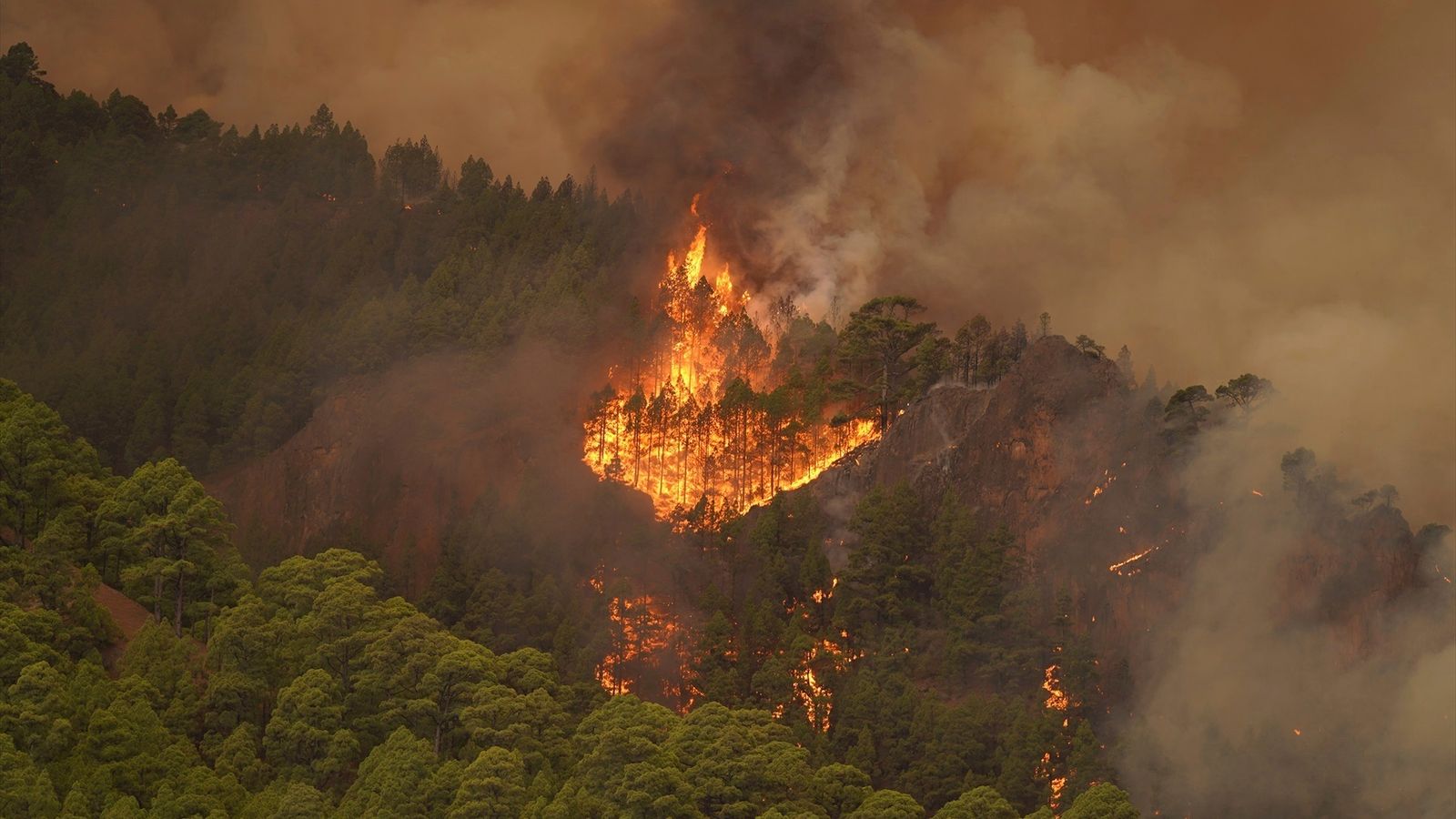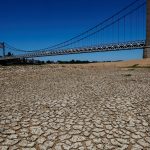Thousands of people have been evacuated in Tenerife as firefighters struggle to contain an “out of control” wildfire.
Nearly 4,500 people were ordered to leave villages and camp sites after the fire started on Wednesday, with thousands more told to stay inside.
The blaze has already burned at least 6,425 acres of land.
“This is probably the most complicated blaze we have had on the Canary Islands, if not ever, in at least the last 40 years,” said the region’s leader, Fernando Clavijo.
He said the fire’s perimeter was nearly 19 miles (30km) long and that it was a race to bring it under control before temperatures increase at the weekend.
Waterbombing planes have managed to stabilise the fire south of Mount Teide, Spain’s highest peak, but it remained out of control on the northern flank.
“When you go outside you start suffocating. It’s as if you have something stuck in your throat,” said Alba Gil, 37, who lives in the village of La Esperanza.
Ukraine war latest: Drone footage captures dramatic attack on Russian training base; German Leopard tanks unveiled
India: At least 72 people killed in flash floods and landslides triggered by torrential rain in Himalayan region
Sudan: Mass graves in West Darfur’s capital haunt remaining residents
More than 3,800 people have also been told to stay at home, said civil protection chief Montse Roman, and more evacuations could follow.
Access to the mountains has been shut off, but the island’s two airports were said to be operating normally.
Seventeen aircraft loaded with water and 350 firefighters and military personnel are involved in the firefighting effort so far.
“We are watching the big mountain and the blaze, we saw this firewall and we’ll see if they can control it, the situation
seems pretty bad,” said Celestino Suarez, 53.
The fire follows a heatwave on the islands last week that left many areas tinderbox dry.
Tenerife is the latest place to experience an unusually serious wildfire this summer.
The most devastating was in Hawaii where at least 106 people died on the island of Maui when a fire raced through a popular coastal town.
Scientists say climate change is helping make extreme weather events more frequent.






















